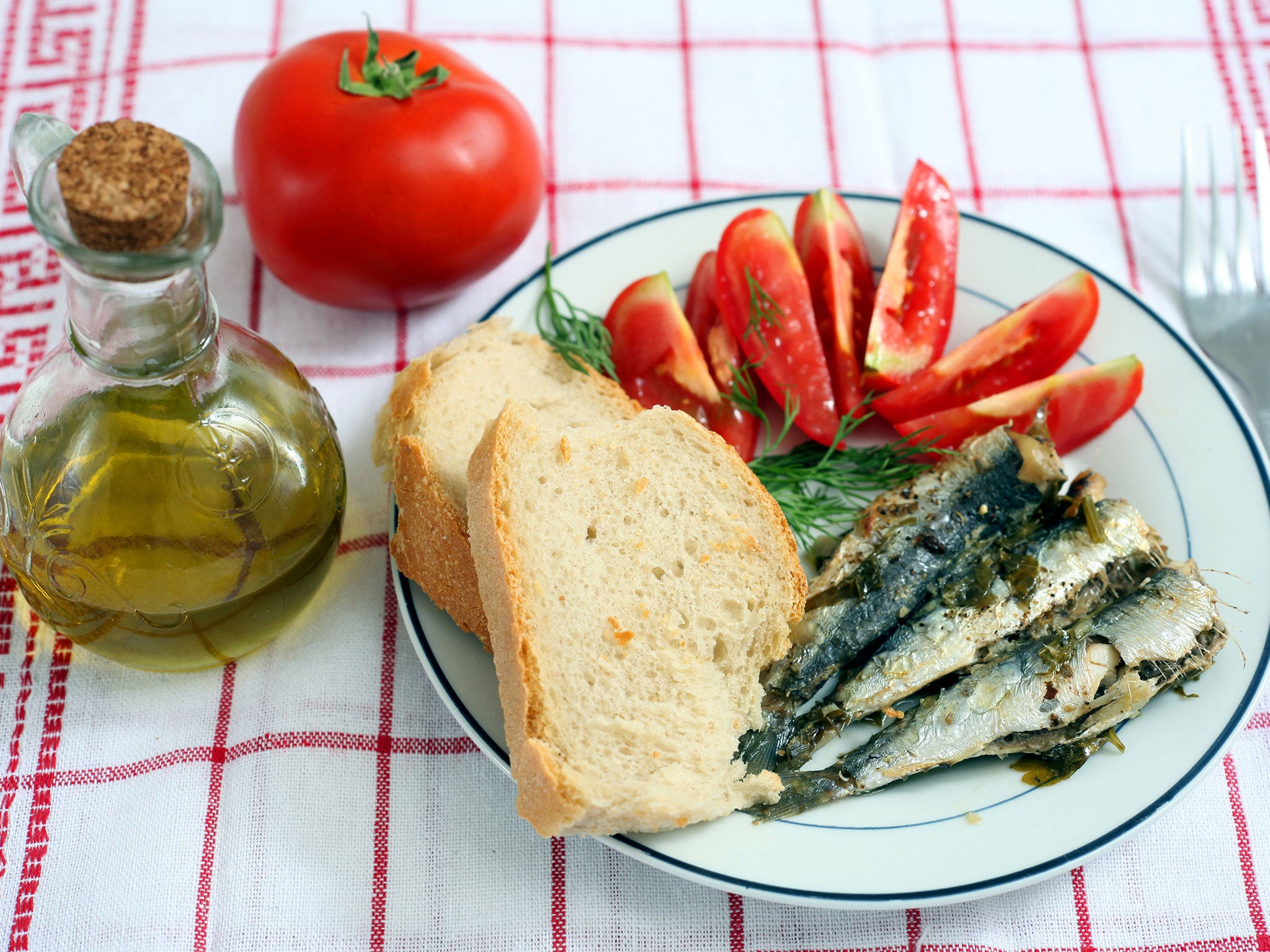Mediterranean diet better than exercise at preventing heart disease, regardless of your age or gender, study finds
Scientists at Harokopio University in Athens are the first to track heart disease in a general population

You've heard the evidence before but one can never be too sure – yet another study has shown that adopting a Mediterranean diet is good for your health.
Filling up on oily fish, nuts, whole grains and fruit and vegetables – and even the odd glass of red wine – could cut your risk of developing heart disease by almost half over a 10-year period.
Scientists at Harokopio University in Athens found that the benefits even outweigh those of regular exercise - and it doesn't matter whether you're a man or a woman, old or young.
The study, which will be presented at the American College of Cardiology's 64th Annual Scientific Session in San Diego later this month, reinforces previous research.
But it is also the first of its kind, in that it tracked heart disease risk in a general population. Most other studies have focused on middle-aged people.
Ekavi Georgousopoulou, a PhD candidate, who conducted the study along with Professor Demosthenes B Panagiotakos, said: "Our study shows that the Mediterranean diet is a beneficial intervention for all types of people - in both genders, in all age groups, and in both healthy people and those with health conditions.
"It also reveals that the Mediterranean diet has direct benefits for heart health, in addition to its indirect benefits in managing diabetes, hypertension and inflammation."
More than 2,500 Greek adults, aged 18 to 89, provided researchers with details about their health each year from 2001 to 2012. The participants also completed comprehensive surveys about their medical records lifestyle and dietary habits three times throughout the study: at the start, after five years and after 10 years.
Additionally the researchers scored the participants' diets on a scale of 1 to 55, according to their intake of the 11 food groups.
During the decade almost a fifth (20 per cent) of the men and 12 per cent of the women who took part in the study developed or died from heart disease.
Overall, those who most closely adhered to a Mediterranean-style diet (participants that scored in the top-third on the scale) were found to be 47 per cent less likely to develop heart disease than those who did not (participants that scored in the bottom-third on the scale). Each one-point increase represented a three per cent drop in heart disease risk.
This figure was the same regardless of other risk factors such as age, gender, family history and smoking habits, all of which the researchers accounted for.
The results of the study also bolster previous research showing that being male, older, and having diabetes or high C-reactive protein levels - a measure of inflammation - are increased risk factors for developing heart disease.
"Because the Mediterranean diet is based on food groups that are quite common or easy to find, people around the world could easily adopt this dietary pattern and help protect themselves against heart disease with very little cost," Georgousopoulou said.
According to the study, women are more likely to adopt a Mediterranean diet than men. Georgousopoulou also pointed out that although Greece is in the Mediterranean, may Greeks have adopted a more Western diet - also known as the meat-sweet diet - over the past 40 years. This diet includes large amounts of red meat, sugary desserts, high-fat foods, and refined grains.
Subscribe to Independent Premium to bookmark this article
Want to bookmark your favourite articles and stories to read or reference later? Start your Independent Premium subscription today.

Join our commenting forum
Join thought-provoking conversations, follow other Independent readers and see their replies